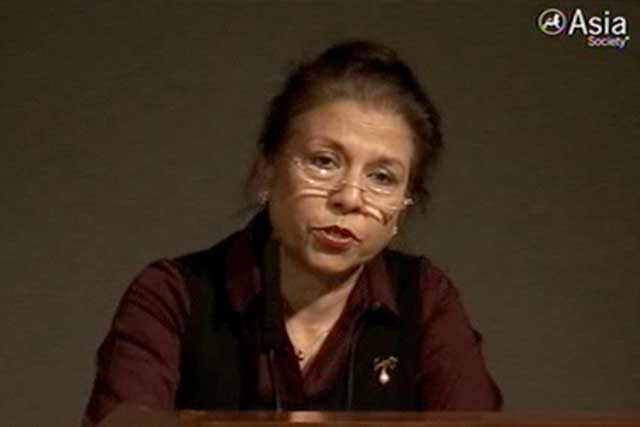Making Sense of Pakistan

NEW YORK, November 18, 2009 – The single greatest source of "ideological uncertainty" in Pakistan is the relationship between Islam and nationalism, according to Farzana Shaikh, Associate Fellow, Asia Programme at the Royal Institute of International Affairs (Chatham House) in London, and author of Making Sense of Pakistan.
In a discussion at the Asia Society moderated by Asia Society Bernard Schwartz Fellow Hassan Abbas, Shaikh stressed the importance of understanding the conflict in Pakistan, "possibly the most important pivotal state in the world." She pointed out that Pakistan "encompasses a geographic territory populated by diverse ethnic groups bound together by a shared religion–Islam; and yet, it is the vexed relationship between Islam and nationalism that has proven to be so deeply problematic."
According to Shaikh, Pakistani nationalism is focused on seeking international validation of Pakistan as the equal of India. “Nevertheless, it is by no means certain that the country has exhausted all the resources to develop a more robust identity," she said. "By recasting its enduring quest for religious consensus in terms of a cultural heritage rooted in the syncretistic traditions of Indian Islam, Pakistan may yet salvage a pluralist alternative, consistent with democratic citizenship and Islam’s respect for the rich diversity of its people.”
Abbas and Shaikh discussed the potential role of favorable new cultural trends that might improve the political situation in Pakistan. Shaikh cited Pakistan’s growing middle class, vibrant media and judicial fraternity as rising forces of change, despite the ongoing dominant role of the military in Pakistani political life. In the epilogue of her book, Shaikh writes that although these forces “are far from being dominant, they seek nothing less than to restore to Pakistan its identity as an integral, rather than an exclusive, part of the South Asian region.”
In order to improve the current political dynamic in Pakistan, Shaikh said that there must be a better working relationship between the two main political parties. When asked what actions she would take if she were running Pakistan today, Shaikh said she would “disentangle the state from religion” and press for Pakistan to “have something close to a secular constitution.”
Reported by Malgorzata Juszczak-Punwaney
